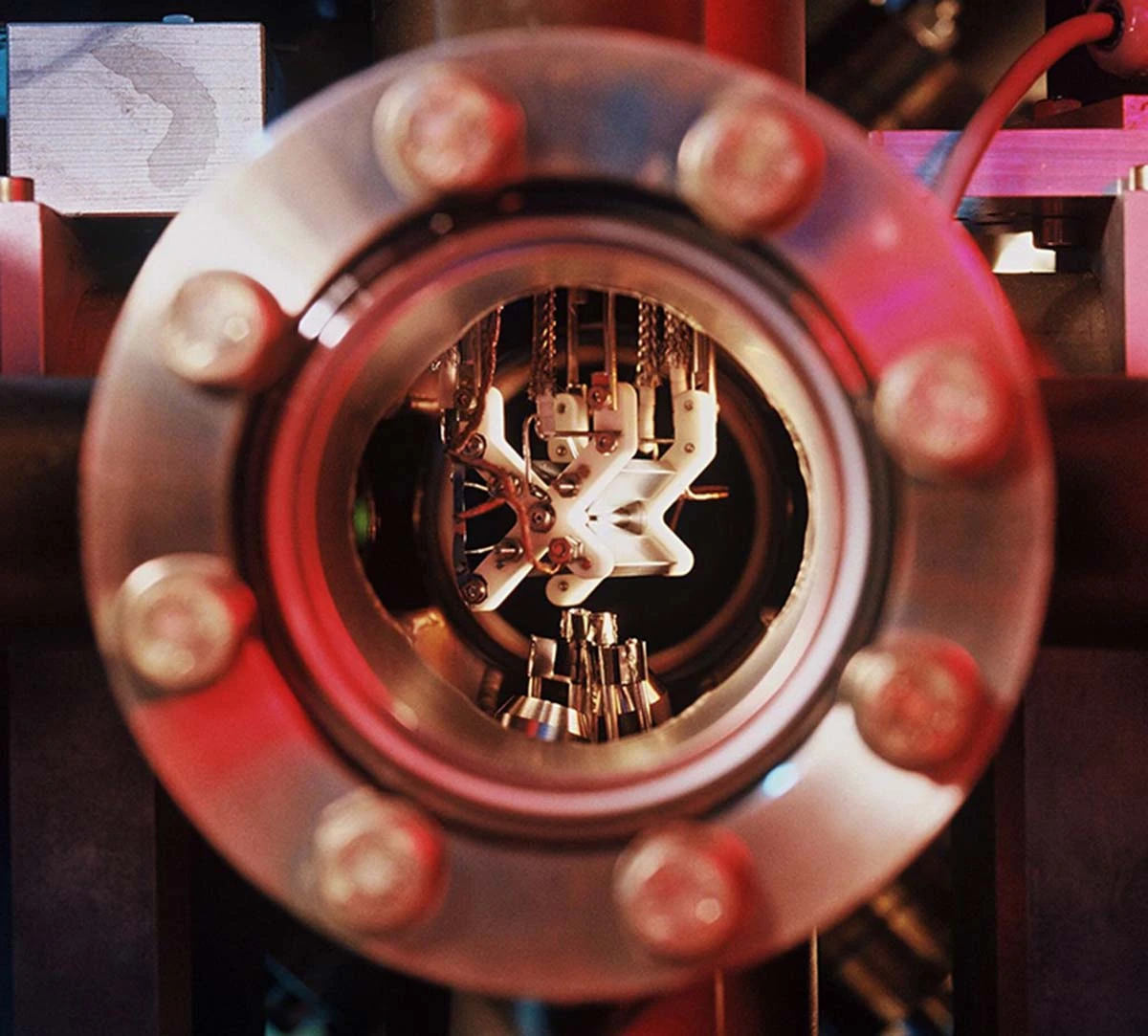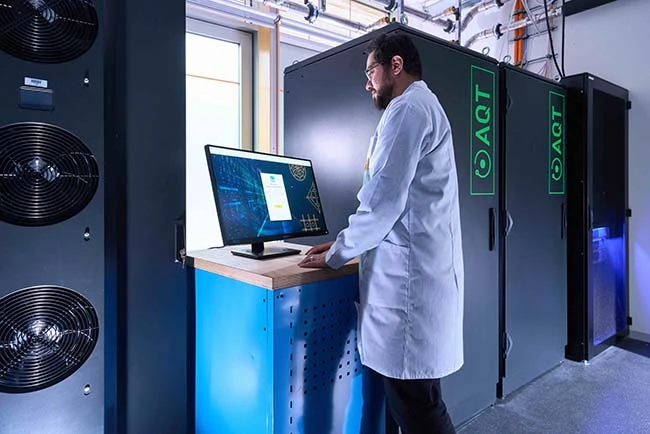November 6th, 2019
AQT now supports Qiskit
A quantum software tool for the AQT ion trap quantum computer
November 2019: Quantum computers promise to solve real-life problems that are beyond the computational powers of classical computers. The computational strength of quantum computers is based on an entirely different set of rules for computation. These different rules of computation also mean that traditional programming languages cannot be used to unleash the power of quantum computers – new programming languages are required. The ion trap quantum computers at Alpine Quantum Technologies (AQT) and the University of Innsbruck now support Qiskit, a prominent open-source programming language initially created by IBM and developed by scientists all around the world. Qiskit comes with a wide range of algorithms and applications, which will now be available via the cloud on the Innsbruck quantum devices.

One of the ion trap quantum computers in Innsbruck, which can now now be accessed via Qjskit.
Quantum hardware and software
Quantum computers may find applications in chemistry, logistics, finance and several other fields. There is an ongoing race between various technologies to realize a quantum computer – including trapped ions, superconducting circuits, single photons and many more. In contrast to the variety in technical approaches, there are only very few quantum programming languages, with Qiskit being the most widely used quantum software development kit. Qiskit includes a large library of algorithms, routines and applications. To date, Qiskit mainly focused on the superconducting platform – which is about to change.
AQT and IBM
Following up on an international Qiskit camp in Switzerland, employees from AQT and students of the University of Innsbruck have been working with IBM on extending the capabilities of Qiskit. Quantum developers can now, at the push of a button, create and investigate entanglement, develop new quantum algorithms, and implement novel quantum applications on devices of IBM, AQT and the University of Innsbruck.
“When we launched Qiskit in March 2017 our goal was ambitious, yet simple — create an open software platform for building quantum programs, mapping them to different backend devices, and running them on simulators and various types of real hardware” said Dr. Walter Riess, Manager, IBM Q Europe, IBM Research. “This open strategy has now enabled us to extend our community beyond our our own superconducting qubit devices to now include ion traps with AQT, who developed and executed the Qiskit interface for their device in only three days.”
Dr. Thomas Monz, CEO at AQT, says “Qiskit will facilitate the development of novel applications for us and our partners.” He is convinced that supporting Qiskit will help Innsbruck to extend its number of collaborators and clients.
© Photocredit: C. Lackner
November 29th, 2024
Intuitive benchmarks as the key to technology decisions
September 25th, 2024
AQT’s ion-trap quantum computer, procured by the Leibniz Supercomputing Centre and Munich Quantum Valley, is now operational at LRZ's Quantum Integration Centre, making it the first of its kind in a computing center.
August 30th, 2024
The total value of the delivery, including services, amounts to 12.28 million euros. AQT is delivering a quantum computer to the Poznan Supercomputing and Networking Center (PSNC) in Poland.



